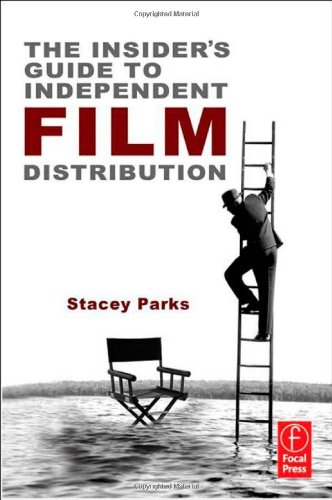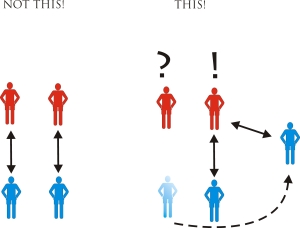I do believe that marketing and distribution is less about the angle and more about making the heart of your film align with the heart of your chosen audience. And some would argue that what I just said is no different but I would counter that point and say some people just don't honor story for the sake of the sale.
Integrity is a personal choice and I bring it up in response to the concept of selling one's soul in order to make a profit - another condition on an already large heap of challenges tying into how crazy you gotta be to try to live with yourself - and just live - doing this work.
This is my gut response to the opening of the book below. Stacey Parks is going right to the forefront of the major market shifts that have reduced power in the opening contract for the filmmaker. According to the introduction we're simply in a decade that has evolved from the movie and DVD boom in the 80s and 90s. Distributors only want to pay royalties, no longer advances. Presales are handled by luck of the right cast pick. But that takes money to start with. Getting money that doesn't come from presales takes a track record and you don't get that without actually pulling off a gamble here and there. Even if you get presales, you're aiming for that to take care of getting you in the black. You might have to pay for theatrical release as a marketing expense and you have to HOPE for US Distribution if you intend on seeing a profit.
But credibility, which is the cornerstone that can make all this happen according to Stacey and others, can apparently be built in different ways. And in the digital age it makes sense to switch focus from impressing the industry to impressing a non-industry audience: your fans.
I've started admitting to people that yes I wanna be a storyteller and yes I want to help but I'm maybe only 70% altruistic. There was a not-so-hidden benefit to writing as it was allowing me to connect with the people I'd been trying to build relationships with throughout my final seasons of college. Stopping this work, even if it was to accommodate production and academia may have been shooting myself in the foot.
This post has been paid for by going to bed at a decent time last night (3:18 am), completely on edge of some very near productions I'm also directing. Personal discipline is constantly evolving but I felt compelled to share:
From the Insider's Guide to Indie Film Distribution, there have been confirmations to just about every angle of research I've done so far. The need for audience outreach, campaigning as soon as preproduction begins and targeting milestones for an audience following in order to ensure successful screening. Certain action lists regarding the pursuit of funding have been clarified, but also in confirmation of previous research, regarding the careful outreach to casting directors or agents/managers directly off a cast wish-list that is pre-approved by the distributors you hope to negotiate with. It also helps if you have 5-10% of your budget for development funds which helps the casting/acting folks take you more seriously. Getting that money, before you have the rich in tow, could just be a matter of having built that community base and getting kickstarter help, or holding screenings, or growing out your network and working for other projects. BUT, you still gotta take a big risk at the very beginning, likely with a bunch of your own skin in the game because no one knows who they're dealing with till you've put yourself out there.
Everything here is both logical and inevitable once you start becoming familiar with the players and the incentives and it's only a complicated run - I imagine - the first dozen times. After which you're a player.
Something I hadn't realized before was that this new title, Producer of Marketing and Distribution or PMD, existed and at the time the 2nd edition was written in 2012, the PMD was pending accreditation with the PGA.
Why aren't we learning this role and it's skillset at the same time we're learning physical production at school?
Let's get what we came for,
C.M. Sanchez III

